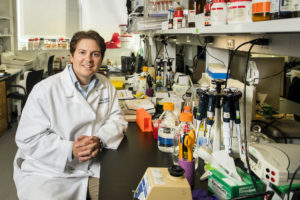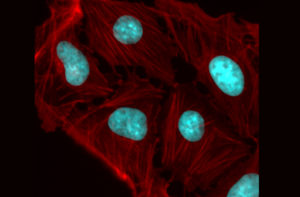by Melissa Pappas

Rechargeable lithium-ion batteries are becoming more ubiquitous, thanks to their use in emerging applications such as battery electric vehicles and grid-scale energy storage, however, these batteries are inefficiently manufactured and unsustainably sourced.
The typical battery cell consists of a separator membrane filled with liquid electrolyte, sandwiched between the negative anode and positive cathode. This design has several drawbacks, including a complex and energy-intensive manufacturing process, inefficient recycling, and increased safety risks as the liquid electrolyte is flammable and crystallization between the electrodes can lead to explosions. Finally, there are substantial geopolitical and environmental risks associated with the global supply chain for lithium-ion battery materials, such as cobalt and lithium.
The solid-state battery design addresses these issues. In solid-state batteries, the flammable liquid electrolyte is replaced by a solid electrolyte, making them safer and more energy efficient. Sodium-ion batteries address the issue of sustainable material sourcing as sodium is more abundant than lithium and cobalt, the materials used in lithium-ion batteries. Both solid-state lithium-ion batteries and sodium-ion batteries are very attractive for battery electric vehicles and grid-scale energy storage applications.
However, current solid-state battery designs also suffer from two major drawbacks: a low capacity for power storage and a resistance to charge transfer.
To tackle the unsustainability in battery materials and the inefficiency of the current solid-state design, the National Science Foundation has awarded a team of Penn Engineers $2.7 Million in funding through its Future Manufacturing program. The team will be led by Eric Detsi, Stephenson Term Assistant Professor in the Department of Materials Science and Engineering (MSE), and will include Eric Stach, Professor in MSE and Director of the Laboratory for Research on the Structure of Matter, and Russell Composto, Howell Family Faculty Fellow and Professor in MSE with appointments in the Departments of Bioengineering and Chemical and Biomolecular Engineering.
“Our team will investigate a novel ‘Eco Manufacturing’ route to a 3D solid-state sodium-ion battery based on polymer solid-electrolytes,” says Detsi. “Our Eco Manufacturing approach will enable us to create batteries from only abundant elements, achieve ultralong battery cycle life, prevent sodium-dendrite-induced short-circuiting by using a ‘self-healing’ metal anode that can transform into liquid when the battery is operating, and efficiently recycle the battery’s anode and cathode. We will also improve the manufacturing process by using time- and energy-efficient processes including direct ink writing, solid-state conversion, and infiltration.”
Read the full story in Penn Engineering Today.












